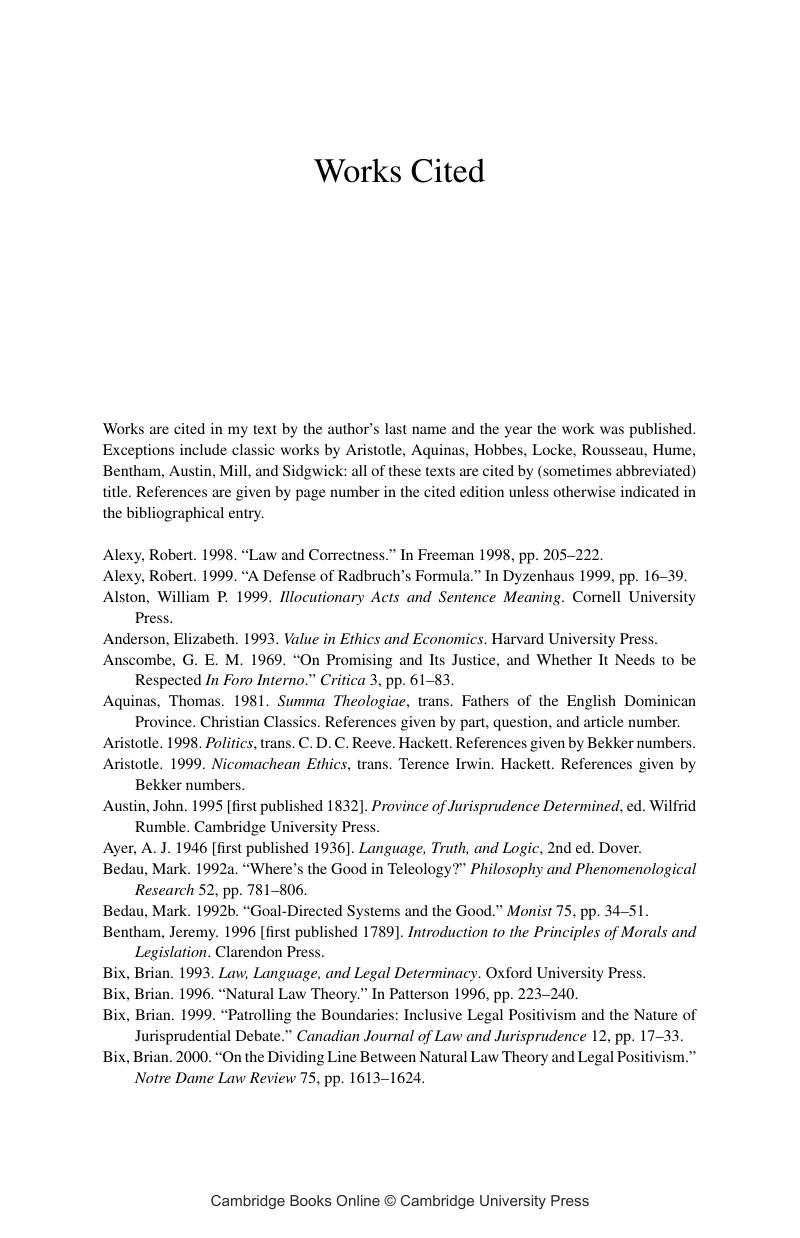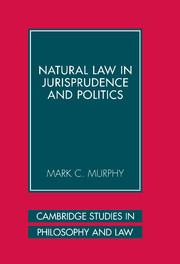Book contents
- Frontmatter
- Contents
- Acknowledgments
- Natural Law in Jurisprudence and Politics
- Introduction: Natural Law Jurisprudence and Natural Law Political Philosophy
- 1 Natural Law Jurisprudence Formulated
- 2 Natural Law Jurisprudence Defended
- 3 The Common Good
- 4 The Natural Law Rejection of Consent Theory
- 5 A Consent Theory of the Authority of Law
- 6 The Authority of Law and Legal Punishment
- 7 Beneath and Beyond the Common Good
- Works Cited
- Index
- References
Works Cited
Published online by Cambridge University Press: 10 March 2010
- Frontmatter
- Contents
- Acknowledgments
- Natural Law in Jurisprudence and Politics
- Introduction: Natural Law Jurisprudence and Natural Law Political Philosophy
- 1 Natural Law Jurisprudence Formulated
- 2 Natural Law Jurisprudence Defended
- 3 The Common Good
- 4 The Natural Law Rejection of Consent Theory
- 5 A Consent Theory of the Authority of Law
- 6 The Authority of Law and Legal Punishment
- 7 Beneath and Beyond the Common Good
- Works Cited
- Index
- References
Summary

- Type
- Chapter
- Information
- Natural Law in Jurisprudence and Politics , pp. 177 - 184Publisher: Cambridge University PressPrint publication year: 2006

